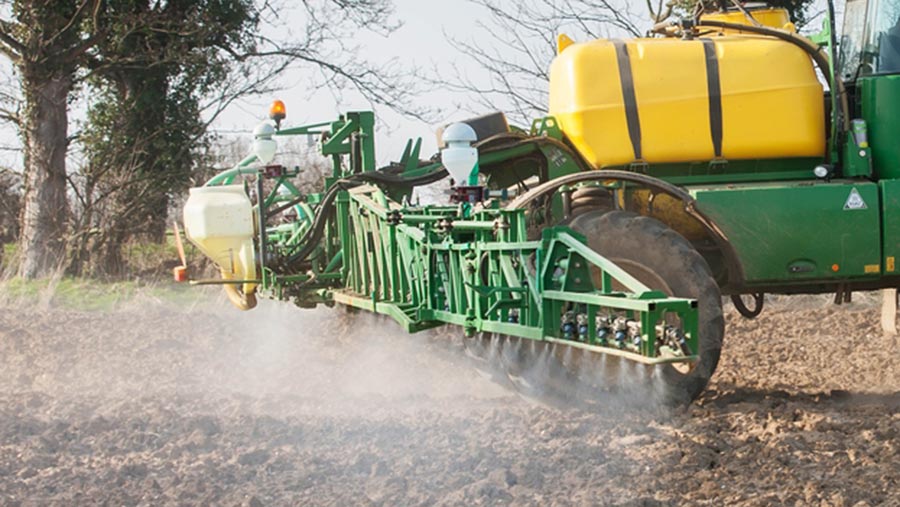Video: German grower warns against glyphosate ban
 © Tim Scrivener
© Tim Scrivener A German grower has warned against a ban on glyphosate and stressed that the alternatives are worse for the environment.
Bernd Olligs, a sixth-generation farmer from Damianshof, near Dusseldorf, said there were no substitutes for glyphosate and a ban would only force growers to use older chemistry and resort to ploughing to control weeds.
“If we lose glyphosate, it would have a serious impact on our management decisions for planting sugar beet and potatoes,” he told Farmers Weekly.
See also: Bayer working on new chemistry to tackle blackgrass
Glyphosate phase-out
“Glyphosate reduces the need for ploughing and minimises soil erosion. Without it, we would need to do more work with tractors in fields, which only increases carbon dioxide emissions.
“In a normal winter, cover crops will die naturally and we don’t use glyphosate.
“But if we have a mild winter and the temperature is too high, then we need glyphosate to kill them [cover crops]. Then, it’s very easy to plant sugar beet or potatoes in the spring.”
The German government has announced plans to phase out glyphosate-based herbicides to control weeds by the end of 2023.
EU authorities are due to re-evaluate glyphosate’s licence at the end of 2022.
In September, Germany’s environment minister, Svena Schulze, of the centre-left Social Democrats, signalled plans for a phased withdrawal of the weedkiller to protect insect populations crucial for ecosystems and pollination of food crops.
40-year safety record
But Bayer bosses defended glyphosate’s 40-year safety record at the company’s Future of Farming conference in Monheim, Germany, last week.
Frank Terhorst, head of crop strategy and portfolio management at Bayer, said glyphosate has the best environmental profile of all herbicides on the market.
Industry data in reviews by regulatory authorities across the world, including in North America and Europe, show glyphosate is safe when used according to the label, he added.
“We will defend glyphosate. We will prepare a data package and we will have an open and transparent process.
“We will fight for glyphosate in Europe and to make it available for growers,” said Mr Terhorst.

